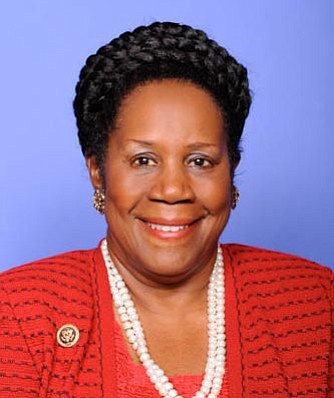Congresswoman Sheila Jackson Lee Introduces Legislation Establishing Cybersecurity Apprentice Program
Style Magazine Newswire | 7/26/2018, 5:02 p.m.
Washington, DC - Congresswoman Sheila Jackson Lee, a senior member of the House Committee on Judiciary, House Committee on Homeland Security since its inception, a member of the Homeland Security Subcommittee on Cybersecurity and Infrastructure Protection, the Subcommittee on Counterterrorism and Intelligence, and the Ranking Member of the House Judiciary Subcommittee on Crime, Terrorism, Homeland Security and Investigations, released this statement on the introduction of her cybersecurity apprentice legislation:
“The House Homeland Security Committee has oversight over the work of the Department of Homeland Security (DHS), our nation’s first line of defense against cyberterrorist threats or attacks. The work of the Committee directs DHS’s efforts to secure domestic civilian agencies and critical infrastructure. This is essential to protecting the National Telecommunications Infrastructure electric utility grid, petro-chemical facilities, ports, air-traffic control, water treatment facilities, industrial control systems that operate mass production from food process to automobiles and the proper functioning of dams, railways, and utilities.
“Since September 11, 2001, our nation has faced the threat of terrorism on our soil and has met that threat with resolve to remain a nation of principles, laws, and a global leader in the fight against terrorist networks and ambitions. When the threat comes from cyberspace, we must bring that same resolve to confront threats both domestic and foreign with the necessary resources and skilled personnel who are prepared to defend our nation around the clock.
“The Department of Homeland Security, just as every federal agency and the private sector, is struggling with finding cybersecurity professionals with the skills needed to ensure success in the field. Homeland Security cybersecurity must be smarter and better than our adversaries, which makes the academic and research community indispensable to the partnerships among government, businesses, academia and the public in developing the right approach to stop our adversaries.
“Early in the 115th Congress I introduced several cybersecurity bills to address gaps in our nation’s cybersecurity posture. I am pleased that H.R. 3202, the Vulnerabilities Disclosure Reporting Act of 2017, was voted out of the House of Representatives. This bill marks the first step in establishing an identification, solution identification, and solution deployment process for cybersecurity vulnerabilities generally described as ‘zero day’ threats.
“The bill I introduced today will address the serious challenge of finding and hiring cybersecurity professionals to fill critical positions throughout the Department of Homeland Security.
“This bill will establish an Office of DHS Cybersecurity On-the-Job Training and Employment Apprentice Program. This Office will be charged with the collection and tracking of open cybersecurity positions and with the development of diagnostic tools that can measure capacity to do well in cybersecurity positions. The Office will head DHS cybersecurity apprentice program recruitment, education, placement, and retention programs for select cybersecurity positions to be determined by the Secretary.
“There are private and public sector cybersecurity positions going unfilled and it is projected that there will be a global shortage of two million cyber security professionals by 2019. In the U.S., 40,000 jobs information security analysts’ positions go unfilled, with an additional 200,000 other cyber-security related roles that require extensive work and investment to fill. This bill, should it become law, will lay a foundation for DHS to expand its cybersecurity workforce during a time when other means of accomplishing this objective are not viable.”





